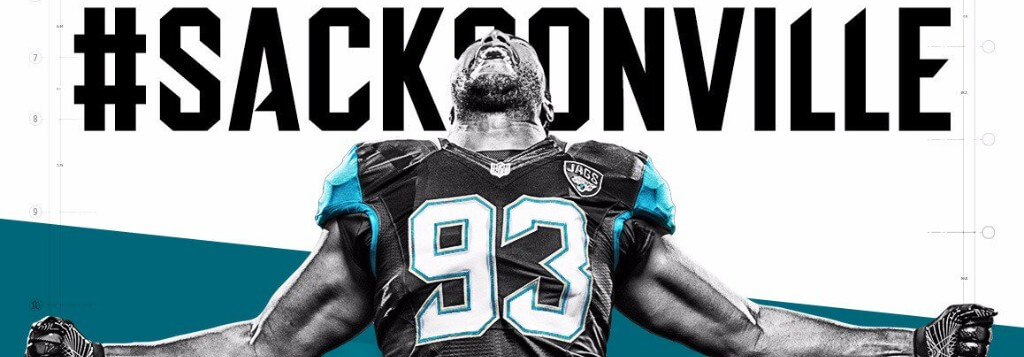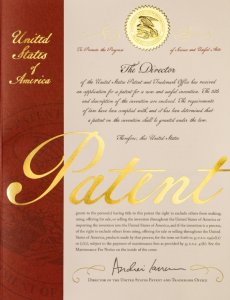Amazon Applies for Clothing Trademarks
Takeaway: Tracking competitor trademark applications can be an indicator of what is to come for a company or the market as a whole.
Amazon has recently filed a series of trademark applications in the areas of clothing, footwear, and headwear. This seems to indicate that Amazon may be expanding their operations into the fashion industry to compete more directly with companies such as Walmart and Target who have already been investing in their own clothing lines. The new trademark applications that Amazon applied for are Night Swim, Truity, Due East Apparel, Zanie Kids, Outerwear Index Co., Common District, and League of Outstanding Kids.
This push into the physical clothing space is not Amazon’s first. Just last year, Amazon announced its intent to enter the active wear space, competing with companies such as Lululemon, Nike, and Under Armour. It is no surprise that after Amazon made the announcement and started hiring experienced clothing industry talent that the stock prices for the above-mentioned competitors immediately dropped.
Just like Costco and its highly successful in-house brand “Kirkland,”, Amazon may be moving in on just reselling other companies’ goods, but its own.
Predicting where the marketplace is going is always difficult, but this is one unexpected way where intellectual property can help your business. By tracking where major players are going through their intellectual property, it can help you make more sound business decisions about what the marketplace may be like in coming years.
Jacksonville Jaguars in a Fight to Trademark #Sacksonville
Takeaway: Trademarking a nickname can be tricky even if the organization is recognized by people nationwide as the source of goods or services.
 Anyone who has been a fan of the NFL’s Jacksonville Jaguars likely knows that the Jaguars’ defense became a force to be reckoned with in the 2017-2018 football season. The sudden dominance on the defensive side of the ball resulted in the Jaguars gaining the nickname “Sacksonville.” Seeing an opportunity to capitalize on the nickname, the Jaguars started selling merchandise featuring the phrase #Sacksonville.
Anyone who has been a fan of the NFL’s Jacksonville Jaguars likely knows that the Jaguars’ defense became a force to be reckoned with in the 2017-2018 football season. The sudden dominance on the defensive side of the ball resulted in the Jaguars gaining the nickname “Sacksonville.” Seeing an opportunity to capitalize on the nickname, the Jaguars started selling merchandise featuring the phrase #Sacksonville.
If you google the phrase “Sacksonville” the first thing that appears in your results is the Jacksonville Jaguars’ current schedule along side an NFL Shop advertisement displaying the #Sacksonville phrase on a t-shirt above the Jacksonville Jaguars’ logo. Not surprisingly, the Jaguars have filed a trademark application on the phrase #Sacksonville, which published for opposition in March of this year.
However, in May, a former Jaguars player, Dan Skuta, has filed an opposition against his former team to prevent them from receiving a federal registration on the trademark. Skuta was cut by the Jaguars before the 2017 season, which was when the Jaguars developed their reputation for having a great defense. Even though Skuta was not associated with the team when their defensive reputation began to develop, he claims that he was the one who came up with the nickname “Sacksonville.”
Skuta is claiming that there will be a likelihood of confusion as to the source of the products being sold under the “Sacksonville” name because he had an Instagram account using the name before the Jaguars were recognized with the nickname. So far, there have been several extensions of time on the opposition because the parties are currently engaged in settlement discussions.
We will have to wait and see how this opposition plays out, but the case presents an interesting issue considering the fact that Skuta has public disclosured using the mark before the Jaguars. But on the other hand, most people hearing the phrase would think the product was coming from the Jaguars, not Skuta.
Photo Credit: https://twitter.com/Jaguars
Senate Passes the Music Modernization Act
Takeaway: Changes are being made in the world of copyright protection for music recordings including more efficient means for compensating artists in a digital world and federalization of pre-1972 recordings.
On September 18, 2018 the Senate passed the Music Modernization Act, which is a bill that deals with the standards for music licensing in the United States.
One of the goals of this act is to end the bulk notice of intent process, which often times hinders songwriters from being paid in a timely manner or even at all for the use of their works. To accomplish this goal the act establishes a new system for mechanical rights where there would be a national database that would attempt to include all copyrighted music in the U.S. This way, there will be a more efficient and central way to determine which artist’s music is being played in streaming services such as Spotify and Pandora. The goal will be to more accurately compensate artists based on the number of times their music has been played on such digital streaming services.
Another important aspect of this Act is that it would federalize pre-1972 music recordings. Before 1972 a composer was able to seek copyright protection over their music but recording artists could not seek protection. This left recording artists to seek protection at the state level with inconsistent rules across the country. A previous bill would have extended the protection for state protected pre-1972 recordings until 2067 whether filed in 1923 or filed in 1971.
Now, pre-1972 recordings would transition into the public domain incrementally based on the time period they were filed. For example, recordings published between 1923-1946 would now expire after 95 years; recordings published between 1947-1956 would get a total of 110 years of protection; and recordings published between 1957-1972 would expire in 2067. Although some recordings will last longer than others, this eliminates some of the disparity between a 1923 recording receiving 144 years of protection and a 1971 recording receiving 96 years of protection.
The New Patent Cover Features a Passage from Article 1 Section 8 of the Constitution
 Takeaway: The new patent cover features a passage from Article 1 Section 8 of the Constitution as a reminder of how our patent system contributes to the progress of science and useful arts in our country and is a constitutional right for all inventors.
Takeaway: The new patent cover features a passage from Article 1 Section 8 of the Constitution as a reminder of how our patent system contributes to the progress of science and useful arts in our country and is a constitutional right for all inventors.
Beginning in March of this year when the 10,000,000th patent issued, all newly issued patents began featuring a passage from Article 1 Section 8 of the Constitution surrounding the seal of the United States Patent and Trademark Office. The phrase reads “to promote the progress of science and useful arts,” and reminds us that our Founding Fathers recognized the important role intellectual property plays in our country.
The leadership at the USPTO recently posted about the addition of this phrase to the patent cover and discussed how the technological improvements in our country have helped saved lives in events such as the recent devastating floods and storm damage in the Carolinas. Events like this show how important the progress of science and useful arts is to our country. We have done great things as a country and will continue to push forward through innovation and creation of new and amazing inventions for the greater good of society.
Photo Credit: https://10millionpatents.uspto.gov/newpatentcover.html
EU Trademarks and Designs in the event of “No Deal” between the EU and the UK
Takeaway: The United Kingdom (UK) Government has set out plans for deal / no deal scenarios in the event that the UK leaves the European Union (EU).
A recently published technical notice addresses EU trademark and design rights given the future relationship of the UK and the EU post-Brexit is still not finalized. Currently the UK’s membership in the EU is due to end on March 29, 2019. For this reason, the UK government has made plans for the possibility of a “no deal” scenario.
For existing EU trademarks and designs registered before the UK exit date, there is no significant difference in effects of a “no deal” situation. Registered marks will continue to maintain protection in the UK and will receive a new UK right. If a deal is reached, this will become effective on January 1, 2021; if no deal is reached, this will take effect on March 29, 2019. For EU trademarks and designs that are pending in the EU on or after March 29, 2019, it will be possible to refile the application at the UKIPO using its normal application process. The EU will allow priority dates of the original EU application for a period of time.
To learn more about the UK’s plans in the event of a “no deal,” read the technical notice here.
PTAB Makes Procedural Changes
Takeaway: The Patent Trial and Appeals Board (“PTAB”) is creating a new panel to decide important issues as well as what decisions should be made precedential. The goal of these changes is to create uniformity and transparency in the PTAB decision making process.
The PTAB is making some changes to its procedures, including how to choose judges, precedential decisions, and the creation of a new special panel to resolve precedential issues.
The PTAB indicates that it is making these changes to remedy a lack of transparency and inconsistency in decisions. This is why it has decided to make the selection of judges and which decisions are precedential more transparent.
Regarding the selection of judges, the PTAB is now explaining how judges are placed onto panels using factors such as technical expertise and experience as a panel judge. For example, newer judges will be placed with more experienced judges.
The new panel being created will be called the Precedential Opinion Panel and will make decisions regarding important issues such as procedure in “creating binding norms for fair and efficient Board proceedings, and for establishing consistency across decision makers[.]” The panel will also decide which board decisions are precedential and when a precedential decision should no longer be designated as precedential.
Jeffrey G. Sheldon Receives New Honors
 Congratulations to our partner Jeffrey G. Sheldon on his inclusion in the 25th Edition of The Best Lawyers in America. Attorneys named to The Best Lawyers in America are recognized by their peers in the legal profession for their professional excellence in 145 practice areas. For the 2019 Edition of The Best Lawyers in America, 7.8 million votes were analyzed, which resulted in almost 60,000 leading lawyers being included in the new edition.
Congratulations to our partner Jeffrey G. Sheldon on his inclusion in the 25th Edition of The Best Lawyers in America. Attorneys named to The Best Lawyers in America are recognized by their peers in the legal profession for their professional excellence in 145 practice areas. For the 2019 Edition of The Best Lawyers in America, 7.8 million votes were analyzed, which resulted in almost 60,000 leading lawyers being included in the new edition.
Additionally, Jeff Sheldon was requested to, and did, consult for California’s Continuing Education of the Bar regarding the patent/trade secret chapter on Internet Law and Practice in California.
We are very proud of Jeff.
Spotlight on Our Client: San Antonio Winery
We are proud to announce that San Antonio Winery, headquartered in Los Angeles and a long-term client, has been given the 2018 American Winery of the Year award by Wine Enthusiast magazine. Moreover, San Antonio’s very successful Stella Rosa brand wine has been named a 2017 “Hot Brand” by M. Shanken Communication publications. To earn this award, Stella Rosa demonstrated double-digit growth each year in 2015, 2016, 2017, and at least 15 percent growth from 2016-17. We have had the pleasure of protecting many of San Antonio Winery’s trademarks, including Stella Rosa in the US and internationally. Out best recommendation is to try some Stella Rosa® wine!



